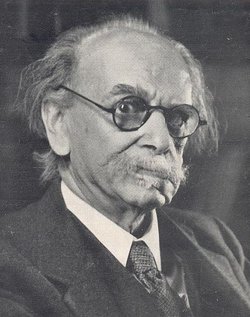A recent discussion in another thread moves me to reproduce the following quotation of Will Durant’s The Story of Philosophy. Although Durant was almost the opposite of a racialist historian, what he says at the beginning of the chapter “From Aristotle to the Renaissance” is germane to understand why the policies that Alexander promoted were poisonous for the still adolescent Greek psyche:
Sparta blockaded and defeated Athens towards the close of the fifth century b. c, political supremacy passed from the mother of Greek philosophy and art, and the vigor and independence of the Athenian mind decayed.
When, in 399 b. c, Socrates was put to death, the soul of Athens died with him, lingering only in his proud pupil, Plato. And when Philip of Macedon defeated the Athenians at Chaeronea in 338 b. c, and Alexander burned the great city of Thebes to the ground three years later, even the ostentatious sparing of Pindar’s home could not cover up the fact that Athenian independence, in government and in thought, was irrevocably destroyed.
The domination of Greek philosophy by the Macedonian Aristotle mirrored the political subjection of Greece by the virile and younger peoples of the north. The death of Alexander (323 b. c.) quickened this process of decay. The boy-emperor, barbarian though he remained after all of Aristotle’s tutoring, had yet learned to revere the rich culture of Greece, and had dreamed of spreading that culture through the Orient in the wake of his victorious armies. The development of Greek commerce, and the multiplication of Greek trading posts throughout Asia Minor, had provided an economic basis for the unification of this region as part of an Hellenic empire; and Alexander hoped that from these busy stations Greek thought, as well as Greek goods, would radiate and conquer.
But he had underrated the inertia and resistance of the Oriental mind, and the mass and depth of Oriental culture. It was only a youthful fancy, after all, to suppose that so immature and unstable a civilization as that of Greece could be imposed upon a civilization immeasurably more widespread, and rooted in the most venerable traditions.
The quantity of Asia proved too much for the quality of Greece. Alexander himself, in the hour of his triumph, was conquered by the soul of the East; he married (among several ladies) the daughter of Darius; he adopted the Persian diadem and robe of state; he introduced into Europe the Oriental notion of the divine right of kings; and at last he astonished a sceptic Greece by announcing, in magnificent Eastern style, that he was a god. Greece laughed; and Alexander drank himself to death.
This subtle infusion of an Asiatic soul into the wearied body of the master Greek was followed rapidly by the pouring of Oriental cults and faiths into Greece along those very lines of communication which the young conqueror had opened up; the broken dykes let in the ocean of Eastern thought upon the lowlands of the still adolescent European mind. The mystic and superstitious faiths which had taken root among the poorer people of Hellas were reinforced and spread about; and the Oriental spirit of apathy and resignation found a ready soil in decadent and despondent Greece.
The introduction of the Stoic philosophy into Athens by the Phoenician merchant Zeno (about 310 b. c.) was but one of a multitude of Oriental infiltrations. Both Stoicism and Epicureanism—the apathetic acceptance of defeat, and the effort to forget defeat in the arms of pleasure—were theories as to how one might yet be happy though subjugated or enslaved; precisely as the pessimistic Oriental stoicism of Schopenhauer and the despondent epicureanism of Renan were in the nineteenth century the symbols of a shattered Revolution and a broken France. Not that these natural antitheses of ethical theory were quite new to Greece. One finds them in the gloomy Heraclitus and the “laughing philosopher” Democritus; and one sees the pupils of Socrates dividing into Cynics and Cyrenaics under the lead of Antisthenes and Aristippus, and extolling, the one school apathy, the other happiness.
Yet these were even then almost exotic modes of thought: imperial Athens did not take to them. But when Greece had seen Chaeronea in blood and Thebes in ashes, it listened to Diogenes; and when the glory had departed from Athens she was ripe for Zeno and Epicurus.
Zeno built his philosophy of apatheia on a determinism which a later Stoic, Chrysippus, found it hard to distinguish from Oriental fatalism. As Schopenhauer deemed it useless for the individual will to fight the universal will, so the Stoic argued that philosophic indifference was the only reasonable attitude to a life in which the struggle for existence is so unfairly doomed to inevitable defeat. If victory is quite impossible it should be scorned. The secret of peace is not to make our achievements equal to our desires, but to lower our desires to the level of our achievements. “If what you have seems insufficient to you,” said the Roman Stoic Seneca (d. 65 a. d.), “then, though you possess the world, you will yet be miserable.” Such a principle cried out to heaven for its opposite, and Epicurus, though himself as Stoic in life as Zeno, supplied it. Epicurus, says Fenelon, “bought a fair garden, which he tilled himself. There it was he set up his school, and there he lived a gentle and agreeable life with his disciples, whom he taught as he walked and worked. He was gentle and affable to all men. He held there was nothing nobler than to apply one’s self to philosophy.” His starting point of conviction that apathy is impossible, and that pleasure—though not necessarily sensual pleasure—is the only conceivable, and quite legitimate, end of life and action.
Epicurus, then, is no epicurean; he exalts the joys of intellect rather than those of sense; he warns against pleasures that excite and disturb the soul which they should rather quiet and appease. In the end he proposes to seek not pleasure in its usual sense, but ataraxia—tranquillity, equanimity, repose of mind; all of which trembles on the verge of Zeno’s “apathy.”
The Romans, coming to despoil Hellas in 146 b. c, found these rival schools dividing the philosophic field; and having neither leisure nor subtlety for speculation themselves, brought back these philosophies with their other spoils to Rome. Great organizers, as much as inevitable slaves, tend to stoic moods: it is difficult to be either master or servant if one is sensitive. So such philosophy as Rome had was mostly of Zeno’s school, whether in Marcus Aurelius the emperor or in Epictetus the slave; and even Lucretius talked epicureanism stoically (like Heine’s Englishman taking his pleasures sadly), and concluded his stern gospel of pleasure by committing suicide. His noble epic “On the Nature of Things,” follows Epicurus in damning pleasure with faint praise.
Nations, too, like individuals, slowly grow and surely die. In the face of warfare and inevitable death, there is no wisdom but in ataraxia, —“to look on all things with a mind at peace.” Here, clearly, the old pagan joy of life is gone, and an almost exotic spirit touches a broken lyre.
Imagine the exhilarating optimism of explicit Stoics like Aurelius or Epictetus. Nothing in all literature is so depressing as the Dissertations of the Slave, unless it be the Meditations of the emperor. “Seek not to have things happen as you choose them, but rather choose that they should happen as they do; and you shall live prosperously.” No doubt one can in this manner dictate the future, and play royal highness to the universe.
Story has it that Epictetus’ master, who treated him with consistent cruelty, one day took to twisting Epictetus’ leg to pass the time away. “If you go on,” said Epictetus calmly, “you will break my leg.” The master went on, and the leg was broken. “Did I not tell you,” Epictetus observed mildly, “that you would break my leg?” Yet there is a certain mystic nobility in this philosophy, as in the quiet courage of some Dostoievskian pacifist. “Never in any case say, I have lost such a thing; but, I have returned it. Is thy child dead?—it is returned. Is thy wife dead?—she is returned. Art thou deprived of thy estate?— is not this also returned?”
In such passages we feel the proximity of Christianity and its dauntless martyrs. In Epictetus the Greco-Roman soul has lost its paganism, and is ready for a new faith. His book had the distinction of being adopted as a religious manual by the early Christian Church. From these Dissertations and Aurelius’ Meditations there is but a step to The Imitation of Christ.
Meanwhile the historical background was melting into newer scenes. There is a remarkable passage in Lucretius which describes the decay of agriculture in the Roman state, and attributes it to the exhaustion of the soil. Whatever the cause, the wealth of Rome passed into poverty, the organization into disintegration, the power and pride into decadence and apathy. Cities faded back into the undistinguished hinterland; the roads fell into disrepair and no longer hummed with trade; the small families of the educated Romans were outbred by the vigorous and untutored German stocks that crept, year after year, across the frontier; pagan culture yielded to Oriental cults; and almost imperceptibly the Empire passed into the Papacy.



